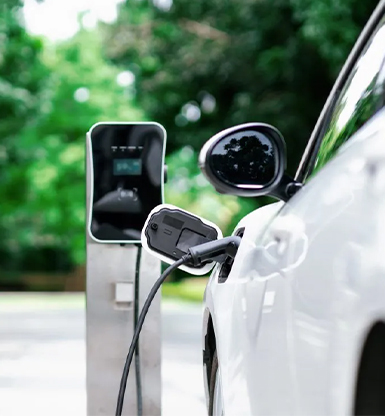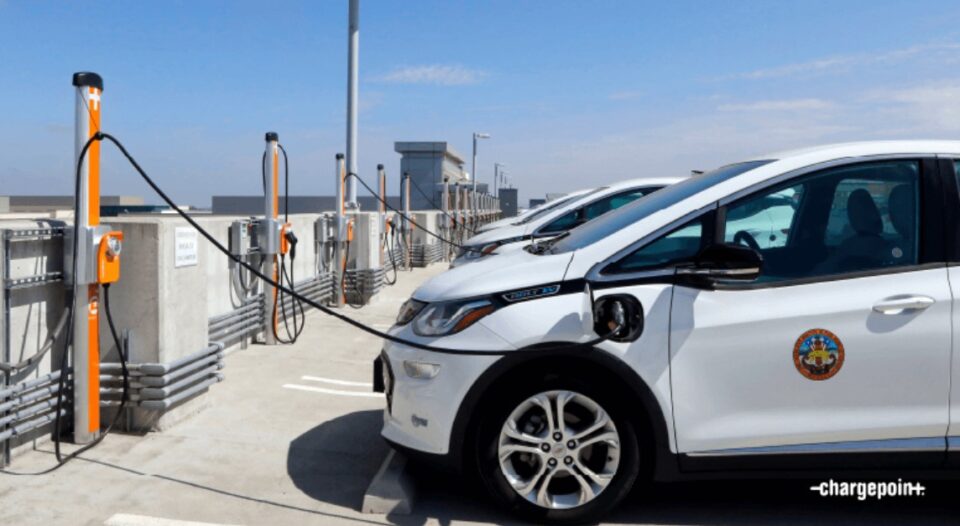Expert Opinions and Market Insights When You Buy EV Charging news
Top EV Charging Information: Trick Updates on Framework and Development

Recent Developments in Fast-Charging Innovation

In addition, developments in battery modern technology, consisting of boosted thermal administration systems and greater power density batteries, complement fast-charging capacities. These developments reduce the threat of battery degradation during fast charging, making certain longevity and performance for EV owners.
Furthermore, the assimilation of smart charging services is improving customer experience, enabling real-time monitoring and dynamic prices designs. EV Charging news. This adaptability permits drivers to optimize charging expenses and times based on grid need
As car manufacturers remain to spend in fast-charging networks, the collaboration between industry stakeholders is important. Collaborations in between charging station carriers and auto manufacturers are paving the way for extensive coverage, ultimately fostering a more durable EV ecological community. These advancements are pivotal in sustaining the change to lasting transport.
Government Initiatives for Charging Development
Federal government campaigns play an important function in the growth of electric vehicle (EV) billing facilities, assisting in the transition to sustainable transport. Different federal and state programs are being implemented to boost billing availability, decrease the financial worry on customers, and advertise the adoption of electric vehicles.
Especially, the U.S. federal government has actually designated significant funding via the Facilities Investment and Jobs Act, which earmarks $7.5 billion for EV billing network growth across the country. This funding is focused on deploying thousands of brand-new charging terminals, particularly in underserved locations, consequently resolving range stress and anxiety among potential EV buyers.
In addition, countless states are establishing regulation to enhance the permitting process for billing station setups, which is important for speeding up release. Incentives such as tax obligation credit scores and rebates for both consumers and companies are also being introduced to urge the setup of charging framework.
In addition, public-private partnerships are increasingly coming to be an emphasis, leveraging personal investment to enhance government funding. These initiatives emphasize a joint method essential for developing a effective and thorough EV charging network, inevitably contributing to a greener and more lasting future.
Cutting-edge Battery Solutions Enhancing Effectiveness
Reinventing the landscape of electrical car (EV) technology, innovative battery options are substantially boosting performance and performance. Advancements in battery chemistry, specifically with lithium-sulfur and solid-state batteries, are causing raised energy thickness, which allows for longer varieties and faster billing times. These brand-new battery types have the prospective to outmatch traditional lithium-ion batteries by supplying greater capabilities while minimizing weight, thus boosting general car performance.
In addition, advancements in battery administration systems (BMS) are maximizing energy use and extending battery life-span. Intelligent formulas monitor battery health and efficiency, allowing real-time changes to billing and releasing processes. This not just enhances the efficiency of the battery but additionally guarantees a more reputable and sustainable power resource for EVs.
In addition, the assimilation of reusing innovations is attending to the ecological effect of battery production and disposal. Developments in second-life applications for EV batteries are promoting their usage in power storage systems, adding to a circular economy.
As these innovative battery services continue to advance, they guarantee to change the EV market, making electric lorries a lot more enticing and obtainable to a more comprehensive audience while supporting global sustainability goals.

Partnership Between Automakers and Billing Networks
Identifying the important need for a durable billing infrastructure, car manufacturers are increasingly teaming up with billing network companies to boost the EV possession experience (EV Charging news). These partnerships aim to produce a seamless billing ecological community that profits consumers and supports the transition to electrical vehicles
Significant vehicle brand names are signing up with pressures with well established charging networks to broaden their charging station insurance coverage, ensuring chauffeurs have accessibility to hassle-free and reputable billing alternatives. For example, collaborations with networks like ChargePoint and Electrify America allow car manufacturers to incorporate charging solutions directly right into their automobiles' navigation systems, assisting customers to the closest stations and supplying real-time availability updates.
Additionally, these collaborations typically lead to the growth of fast-charging innovations that significantly decrease the time required to reenergize an EV. By pooling resources and competence, car manufacturers and charging networks can innovate faster, creating remedies that fulfill the growing demand for electrical wheelchair.
On top of that, joint initiatives might additionally cause more standard charging procedures, which can minimize customer confusion and promote broader EV adoption. In general, these strategic partnerships are pivotal in constructing a easy to use and effective billing facilities that fulfills the needs of an increasing electrical automobile market.
Difficulties Dealing With EV Billing Framework
As the electric lorry market proceeds to grow, numerous difficulties are surfacing that hinder the growth of a detailed billing facilities. One of the main barriers is the insufficient variety of charging stations, particularly in rural and underserved urban locations. This void develops range anxiousness amongst potential EV customers, preventing them from making the switch.
Additionally, the absence of standardization accountable technology complicates the facilities landscape. Variants in plug types and billing rates can sites develop complication for users and boost functional intricacies for billing network drivers. Moreover, the integration of charging stations right into existing electrical grids presents substantial obstacles. Several areas deal with ability restrictions, requiring considerable financial investments in grid upgrades to fit enhanced demand.
One more pushing concern is the high cost connected with the installment and upkeep of billing stations, which can be an obstacle for both public entities and exclusive companies. Regulatory difficulties and zoning limitations can postpone the release of billing infrastructure, hampering progression in broadening crucial solutions. Attending to these challenges will certainly be important for their explanation cultivating a durable EV community that sustains the change to sustainable transport.
Final Thought
Finally, the recurring developments in EV billing modern technology, sustained by substantial government initiatives and ingenious battery solutions, are important for the growth and performance of electrical car facilities. Partnerships between car manufacturers and charging providers further improve terminal coverage, addressing the expanding need for accessible billing options. Regardless of difficulties that continue within the EV charging landscape, these advancements signify a positive trajectory towards an extra sustainable and efficient electric lorry community.
Advancements in charging framework have led to the he has a good point advancement of ultra-fast chargers capable of supplying up to 350 kW of power, significantly reducing billing times. Variations in plug types and charging rates can produce complication for users and raise functional complexities for charging network operators.In conclusion, the recurring innovations in EV billing innovation, supported by significant government efforts and innovative battery solutions, are critical for the growth and efficiency of electrical lorry infrastructure. Cooperations between car manufacturers and charging companies better enhance station protection, addressing the growing need for available charging choices. Despite difficulties that persist within the EV billing landscape, these advancements represent a favorable trajectory in the direction of a much more reliable and lasting electric lorry community.